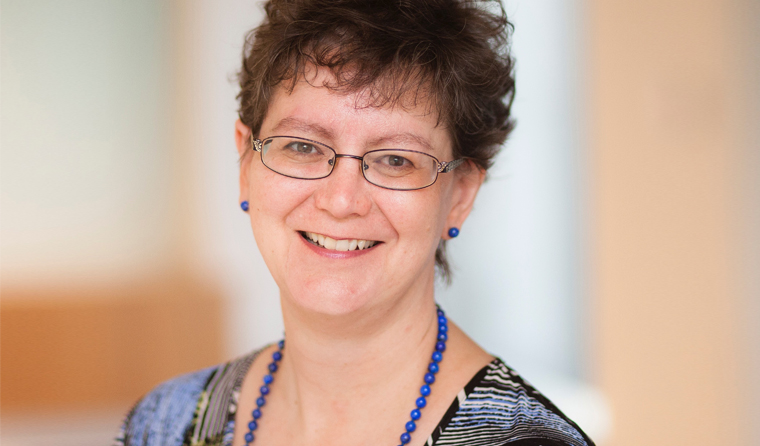Feature
No need to suffer in silence: Changing attitudes to discussing suicide
The long-held belief that the topic of suicide should not be discussed openly is beginning to change, as long as it is handled with sensitivity.
 While open discussion about suicide has traditionally been discouraged, staying quiet on the issue has been found to have its own negative aspects.
While open discussion about suicide has traditionally been discouraged, staying quiet on the issue has been found to have its own negative aspects.
‘Thinking about life not being worth living is probably more common an event in the community than many people realise.’
This is Dr Caroline Johnson, a GP and Senior Lecturer in General Practice at the University of Melbourne, speaking on suicide, a subject many still regard as taboo.
For many years, open discussion about suicide has been discouraged, particularly in the media. There has been very good reason behind this, however, as research has shown that media coverage of suicide can contribute to the copycat phenomenon.
But there has been a softening of this approach over recent years, with staying quiet on the issue having been found to have negative aspects of its own.
‘The shift [has occurred] mostly because we have recognised that keeping quiet about suicide is not very helpful and undoubtedly increases stigma,’ Dr Johnson told newsGP.
This changing orthodoxy has led to a rise of new guidelines for media reporting of suicide, which emphasise reduction of stigma about the mental health issues behind it, while also handling the conversation with sensitivity and awareness of its potential impact.
Dr Johnson believes the framework behind these guidelines for discussing suicide is also applicable to general practice.
‘We now know in clinical practice that asking someone if they have thought of suicide does not increase their risk and may better allow the clinician to facilitate the right level of help, depending on how serious, immediate and intense the thoughts of self-harm are,’ she said.
‘So it is important to ask, but it is also vital to know how to do so in a sensitive manner and to follow up properly on any disclosure.’
 Dr Caroline Johnson believes it is helpful to discuss suicide with patients, as long as the topic is broached in a sensitive manner.
Dr Caroline Johnson believes it is helpful to discuss suicide with patients, as long as the topic is broached in a sensitive manner.
People experiencing suicidal ideation or other mental health issues are also likely to be visiting GPs – although they are not always as likely to raise the issue with their practitioner.
‘We know from the 2007 National Mental Health Survey [NHMS] that of the people with a mental health problem accessing the health system, the clear majority will go to their GP,’ Dr Johnson said.
‘The problem is that only a third of people with depression and anxiety will seek help from the health system.
‘In the NMHS, when the two thirds not seeking care were asked what kind of help they needed, 85% said they had no need for care. This is the group GPs also often see for other reasons, so we need to be highly skilled in engaging people in conversations about mental health and reducing stigma around help-seeking.’
While raising the subject of suicide and suicidal ideation may be daunting, Dr Johnson has some advice about how to approach it during a consultation.
‘I advise GPs to focus on normalising [discussion of suicide], but then turn the focus towards practical things that can be done to prevent such thoughts turning into actions,’ she said.
‘Broaching it … needs to be preceded by some empathetic statements and signposting, so the patient is not taken by surprise.
‘The Red Book [Guidelines for preventive activities in general practice 9th edition] outlines the risk factors for suicide and has a good list of the questions to ask that evaluate risk further. It also gives some examples of phrasing to use when broaching the topic in a consultation.
‘For GPs wanting to upskill, the GPMSHC [The General Practice Mental Health Standards Collaboration] has an excellent guide that captures lots of useful resources in one place, and section six, the tool kit, contains links to lots of options for patients as well,’ she said.
Another resource Dr Johnson has found helpful is the Beyond Now app from beyondblue, a safety-planning app that enables health professionals and patients to work together on a structured plan to help people get through bouts of suicidal ideation.
‘In my early career we learned to create a “contract” with the patient not to self-harm, but the more modern concept of “safety planning” as outlined in Beyond Now is more empowering of the patient and very practical,’ she said.
Dr Johnson has ultimately found that sensitive discussion about suicide between patients and GPs is appropriate and helpful.
‘Suicide shouldn’t be kept completely quiet or ignored, but it does require handling with a great deal of sensitivity,’ she said.
mental health suicide suicide prevention
newsGP weekly poll
Health practitioners found guilty of sexual misconduct will soon have the finding permanently recorded on their public register record. Do you support this change?